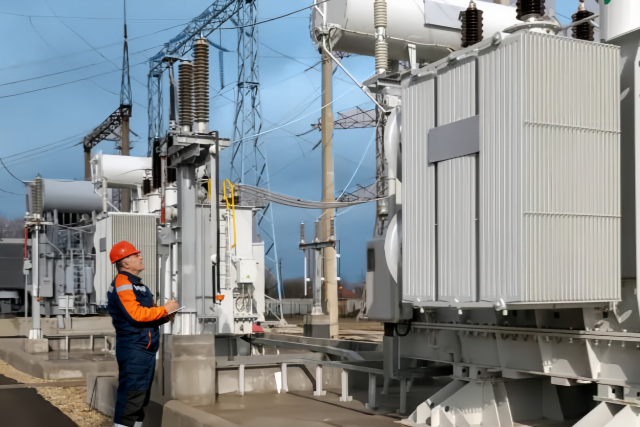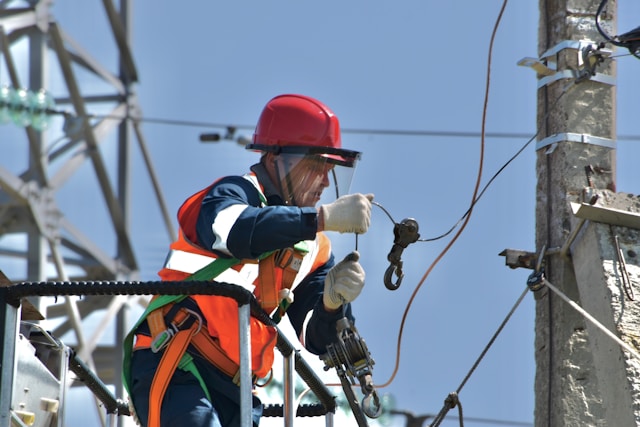An insulation resistance tester evaluates the insulating materials’ resistance to electrical leakage current, ensuring system safety and preventing failures. Chinese manufacturers like Wrindu produce advanced, reliable insulation testers tailored for OEM, wholesale, and factory clients worldwide.
What Is an Insulation Resistance Tester and Why Is It Important?
An insulation resistance tester applies a high DC voltage to measure resistance in cables, transformers, motors, and other electrical equipment insulation. High resistance indicates effective insulation, protecting against electrical shocks and equipment breakdown.
Chinese factories and suppliers prioritize insulation resistance testing to meet strict safety standards and enhance product quality for global markets.
How Does an Insulation Resistance Tester Work?
The tester generates a DC voltage (commonly between 250V – 10kV) and applies it to the insulation. The resulting leakage current is measured to calculate insulation resistance. The higher the resistance, the better the insulation condition.
Wrindu’s testers feature precise voltage control and sensitive measurement technologies, offering accurate, repeatable test results suitable for both lab and field use.
Which Types of Insulation Resistance Testers Are Available?
Typical types include:
-
Handheld portable insulation testers for field use
-
Bench-top high-precision testers for factory and laboratory applications
-
Digital testers with data logging and Bluetooth connectivity
OEMs and wholesalers in China customize these test instruments to meet various operational demands.
| Tester Type | Features | Typical Use |
|---|---|---|
| Portable Handheld | Lightweight, battery operated | On-site field inspection |
| Bench-top | High accuracy, extensive controls | Factory QC and labs |
| Digital Bluetooth | Data storage and wireless transfer | Advanced maintenance and analysis |
Why Should Buyers Choose Chinese Manufacturers for Insulation Testers?
China-based suppliers like Wrindu combine cost-effective production with innovation and rigorous quality control. Their products comply with IEC, ISO9001, and CE safety standards, fostering trust among OEM factories and wholesale customers worldwide.
Furthermore, support and customization options make Chinese-based products an attractive choice in the global market.
When Should Insulation Resistance Testing Be Performed?
Testing should occur during manufacturing, pre-commissioning, periodic maintenance, and fault diagnosis. Regular testing detects insulation degradation early, avoiding outages and costly repairs.
OEM factories in China incorporate these tests into routine quality assurance to maintain product reliability and safety compliance.
How Can Insulation Resistance Testers Improve Electrical System Maintenance?
They provide vital data that helps monitor insulation condition trends over time. Early detection of insulation weakness prevents failures, extends equipment life, and reduces downtime.
Wrindu’s testers include features like result storage and trend analysis, supporting proactive maintenance and asset management.
Where Are Insulation Resistance Testers Commonly Used?
Applications span power plants, substations, industrial installations, construction sites, and maintenance workshops. Portability and ruggedness are key for field applications.
Chinese manufacturers provide a variety of models tailored for different working environments and customer needs in OEM and wholesale sectors.
Does Proper Usage and Training Affect Test Accuracy?
Yes. Correct connection, appropriate voltage selection, and discharge procedures influence measurement reliability and safety. User proficiency reduces errors and ensures valid results.
Wrindu supports customers with trainings, manuals, and global technical assistance to enhance testing practices.
Can Insulation Resistance Testers Detect All Types of Insulation Faults?
They effectively identify resistive insulation faults but may not detect partial discharges or mechanical defects. Integrating other diagnostic techniques enhances comprehensive insulation analysis.
Chinese OEM factories deploying Wrindu testers often implement multi-faceted testing programs to ensure complete diagnostics.
Could Smart Technology Integration Benefit Insulation Resistance Testing?
By incorporating Bluetooth, cloud data storage, and IoT connectivity, testers enable remote monitoring, data analytics, and real-time maintenance alerts.
Wrindu pioneers the development of smart features that help users optimize testing workflows and improve system reliability.
Wrindu Expert Views
Insulation resistance testing is a cornerstone of electrical safety and reliability. Wrindu’s advanced insulation resistance testers deliver precision, durability, and user-friendly operation, supporting OEM manufacturers and wholesalers across China. Our commitment to innovation and quality empowers technicians worldwide to confidently protect power systems from insulation failure and ensure operational continuity.” — Lead Product Engineer, Wrindu
Conclusion
An insulation resistance tester is vital for assessing insulation integrity and ensuring electrical safety. China’s manufacturers and OEM suppliers like Wrindu develop innovative, reliable testers that cater to a wide range of customers and applications. Integrating these devices into manufacturing and maintenance protocols improves reliability, reduces failure risks, and strengthens global market trust.
Frequently Asked Questions
Q1: What voltage levels do insulation resistance testers use?
Typically from 250V up to 10kV, depending on application.
Q2: How often should insulation resistance testing be done?
During manufacturing, commissioning, and routine maintenance intervals.
Q3: Are portable insulation resistance testers accurate?
Yes, high-quality portable testers provide reliable results for field inspections.
Q4: Can Wrindu customize insulation resistance testers?
Yes, they offer tailored solutions for factory and wholesale clients.
Q5: How does insulation resistance testing prevent equipment failures?
By detecting insulation deterioration early, enabling timely repairs or replacements.



